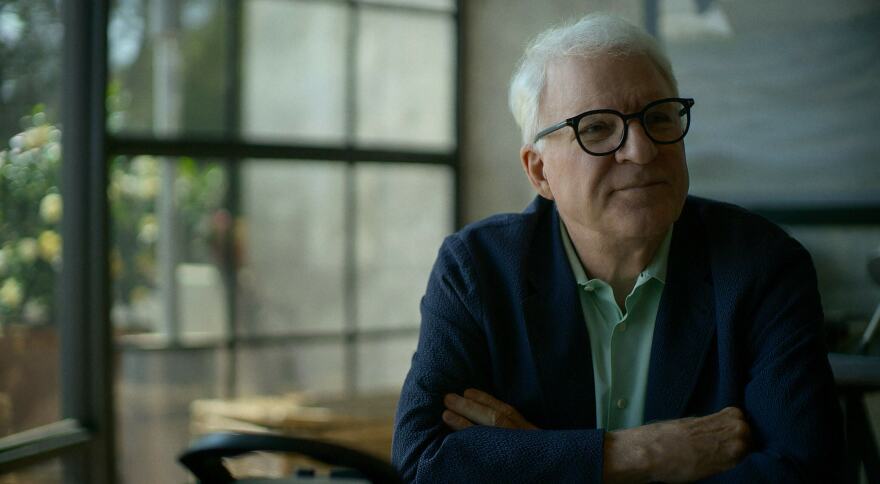On the surface, it would seem like doing a documentary about Steve Martin would be like shooting fish in a barrel. But any ho hum documentarian could do a clip reel of Martin’s best stuff and call it a day. Not Apple TV though: they brought in the big guns, Morgan Neville. For Morgan, the guy who brought everyone to tears making a film about Mr. Rogers, finding the deeper meaning in another man of universal approval requires a different kind of approach…one that fits STEVE!, and only Steve, as befitting the unique cosmic being Martin has been for over 40 years now.
As said in the title, this documentary is in two parts. Part one is a time travel doc, as we go through Steve Martin’s ascent into comedy glory, seeing how the greatest living comedian came to be. Part two then zips us into the present day, documenting Martin’s movie career and bringing us up to date on all the other goings on in his life since he stepped away from comedy in the late 1970s.
For Part One (called Then), Neville doesn’t show us any current day views of Steve Martin. His story in this part of the doc is strictly voiceover only, a smart way to quickly immerse us in the past. Neville shows why he’s one of the best in this section: in between montages of comedy sets, the documentarian begins to shape Steve Martin the person, building him brick by brick. Most documentarians would have leaned a little too hard into the “my dad didn’t love me” part of Steve Martin’s drive. Instead, Neville lays down the tonal foundation of the man first: someone constantly curious and moving forward with delight. So instead of hearing Steve pontificate hard about his father and how it drove him to seek acceptance everywhere else immediately, Neville zags and instead frames it as, no love at home means Steve got his love elsewhere, and never sought that kind of joy during his rise. It’s not a sad thing, it’s just a…different way. And that’s the key message here Neville drives home: Steve became the best because he looked at comedy from completely different angles from his contemporaries. He worked as hard as Lenny Bruce, or the Smothers Brothers, but Steve brought in a little philosophy, and sought out a different energy when going for laughs. Instead of setup setup punchline, he went for the hang out laughs you have with friends, philosophically challenging the very nature of the comedian itself. As a result, when he leaves comedy at his peak, it’s not a stunning result: it’s a culmination of a curious man trying to figure out something, finally understanding it, and simply moving onto his next thing.
And because Steve Martin never takes the normal route, we have a Part Two (called Now). Neville’s light bemused energy changes in this part, befitting the older, more knowledgeable Steve Martin we see in present day. With comedy conquered, Neville and Martin enter the the movie world where most people got to know the guy. And while there are plenty of great laugh out loud movie moments we get to see, Neville’s more interested in seeing how this new medium and older age sends the curious Martin into his version of “the performer’s downfall.” Here Steve gets more introspective and a little sadder: that unloving childhood? It starts to show up here, as Steve finds himself in movie roles where he’s alone trying to find love from others, or playing the dad he never had. And again, this is why Steve Martin is such a different documentary subject: instead of falling into drugs, or deep deep depression, Steve zags again, and starts to use those movies he made to build a life like his movie characters for himself. Instead of this being a tragic study of a man who never found happiness, Neville turns the story again, as Steve finds his happiness through various passions in his life (art, banjo, Martin Short), and, very sweetly, becoming a husband (Anne Stringfield) and father, and taking well to it which he never thought possible.
One thing is clear after watching STEVE! There’s only ever going to be one Steve Martin. Morgan Neville’s documentary opus drives home that point over and over, reminding us how lucky we were to see someone that special who made us laugh along the way. To put it in terms Gen Z’er hopefully understand: Steve Martin: he’s him.

